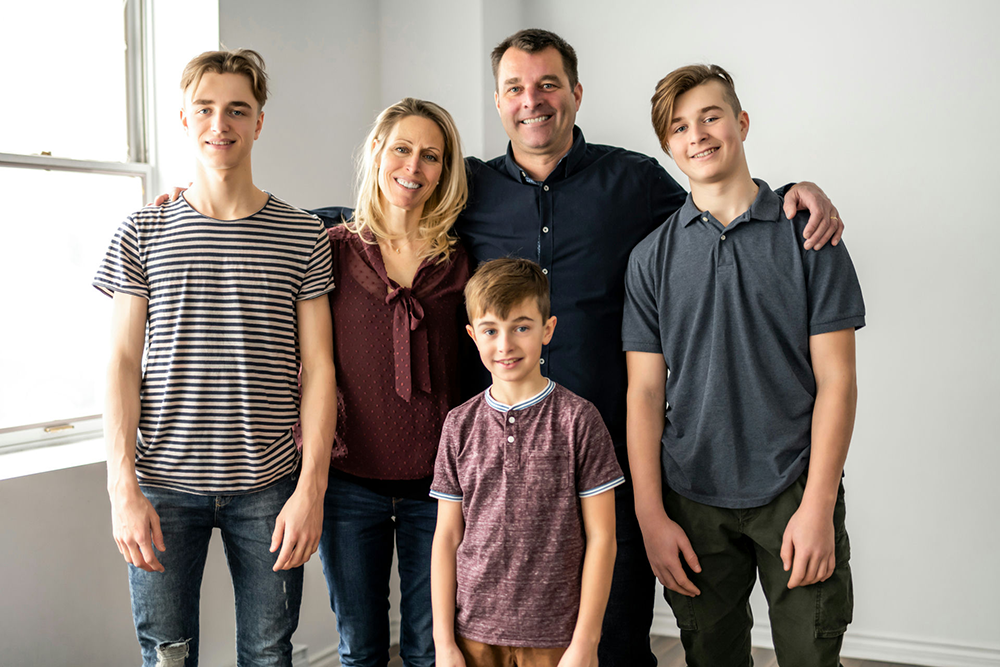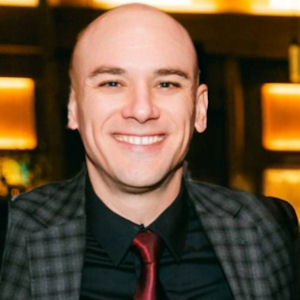According to the Substance Abuse and Mental Health Services Administration (SAMHSA), more than one in ten children in the United States lives with at least one adult who has a substance use disorder. Addiction affects family relationships, communication, and daily life for everyone involved. At 449 Recovery, treatment is not focused only on the person struggling with addiction, but also on the family system as a whole.
Family therapy for addiction is a treatment approach that includes family members in the recovery process. It brings relatives together with a therapist to talk openly, learn new skills, and work on challenges related to substance use. Unlike individual counseling, which focuses on the thoughts and behaviors of one person, family therapy looks at how addiction affects everyone in the family and how each person’s actions and feelings are connected.
In addiction family counseling, family members participate in treatment sessions with the person who has a substance use disorder. These sessions help everyone learn healthier ways to talk to each other and solve problems together. Family members may attend sessions together or in small groups, depending on the situation.
During family therapy, the group learns about addiction as a disease that impacts thinking, emotions, and behaviors. Therapists teach healthy communication skills so that everyone can express themselves in a safe and respectful way. The goal is to help families understand addiction, reduce conflict, and support each other during recovery. 449 Recovery provides family therapy as part of a whole-person, evidence-based approach, recognizing that lasting recovery often involves working with the entire family system.
Why Family Addiction Counseling is Essential for Lasting Recovery

Research from the National Institute on Drug Abuse (NIDA) shows that people in addiction treatment programs with family involvement have higher rates of staying in treatment and better long-term recovery outcomes compared to those without family support. Addiction does not affect only the individual; it changes the daily lives, emotions, and routines of everyone in the family. Counseling for families of addicts addresses these changes by working with the entire family, not just the person with substance use disorder.
Family participation in treatment is linked to increased treatment retention. According to NIDA, retention rates can increase by up to 50% when families are involved in therapy. Family members learn healthy communication skills, which help them avoid enabling behaviors. Instead of protecting or rescuing, families learn how to set clear boundaries and discuss difficult topics in a respectful way.
Relapse prevention is another focus of family addiction counseling. Families are taught to recognize early warning signs of relapse and respond in ways that support ongoing recovery. Sessions may include education on relapse triggers and practical exercises for responding to challenges as a team.
Healing relationships is a core goal. Addiction often breaks down trust and connection between family members. Through therapy, families work to rebuild honesty, repair trust, and form healthier patterns of support. At 449 Recovery in California, these evidence-based practices are integrated into the treatment plan, with family involvement considered an essential part of lasting recovery.
Evidence-Based Family Therapy Approaches for Addiction Treatment
Family treatment for substance abuse uses research-backed methods to address addiction as a problem that affects the entire family system. These approaches are based on the family model of addiction, which sees substance use and recovery as interconnected with family relationships, roles, and patterns. 449 Recovery uses evidence-based therapies to help families understand and change these patterns and support long-term healing.
| Approach | Best For | Key Focus
|
| Behavioral Couples Therapy | Married couples/partners | Relationship skills and sobriety contracts |
| Multidimensional Family Therapy | Adolescents and families | Multiple life domains and family functioning |
| Family Behavior Loop Mapping | All family types | Understanding addiction patterns and triggers |
| Psychoeducation | All family members | Learning about addiction and recovery |
Behavioral Couples Therapy (BCT) is designed for married couples or committed partners where one or both people are affected by addiction. BCT focuses on building relationship skills, improving communication, and creating sobriety contracts.
A sobriety contract is an agreement between partners to support abstinence from drugs or alcohol, often including daily or weekly check-ins. Communication training teaches partners to discuss addiction and recovery without blame. Relationship rebuilding activities help restore trust and emotional closeness that may have been damaged by substance use.
Multidimensional Family Therapy (MDFT) is used with adolescents and their families. MDFT addresses different areas of a teen’s life at the same time, including family relationships, school, peer groups, and personal well-being.
Individual sessions involve the teen and a therapist working on personal goals and challenges. Family sessions focus on helping everyone communicate more effectively and solve problems together. Community involvement may include working with schools or other organizations to support the teen’s recovery and healthy development.
Family Behavior Loop Mapping is an approach that helps all types of families see how certain patterns and triggers contribute to addiction. The family and therapist map out the steps that lead up to substance use and the reactions that follow.
Pattern identification involves recognizing enabling behaviors, such as covering up for a loved one’s substance use. Trigger mapping helps families see what situations or emotions tend to lead to substance use. Response planning works on developing new ways for the family to respond to triggers, aiming for healthier and more supportive reactions.
Psychoeducation is a structured way to provide family members with information about addiction and recovery. Therapy for the family of addicts often includes psychoeducation to help everyone understand what is happening and what to expect.
Addiction science explains how substances affect the brain and behavior. The recovery process section covers the stages of treatment and common challenges families may experience. Families also learn the difference between enabling and supporting, so they can make informed choices about how to help their loved one.
How Family Therapy Reduces Addiction Relapse Rates
Recent data from the Substance Abuse and Mental Health Services Administration (SAMHSA) indicates that people in recovery who receive family-based support have significantly lower relapse rates—up to 50% lower—than those without family involvement. Family support during addiction treatment is associated with more stable, long-lasting recovery outcomes.
Family therapy helps families recognize early warning signs of relapse. Members learn to notice changes in behavior, mood, or routines that might signal a return to substance use. This early recognition can prompt timely support or intervention.
Accountability systems are established during family therapy sessions. Family members and the person in recovery often agree on ways to check in with each other, such as regular conversations or shared goals. These systems provide structure and help maintain progress.
Improving family dynamics also reduces stress, which is a common trigger for relapse. Therapy encourages open communication, conflict resolution, and setting healthy boundaries. By reducing stress at home, families create an environment less likely to contribute to setbacks.
A strong support network is built through family therapy. The family learns to work together as a recovery team. This recovery-focused environment offers encouragement and practical support, both during treatment and as life continues.
At 449 Recovery, the approach to family therapy is designed to support long-term recovery by addressing these key factors. The goal is sustained wellness and stability for both the individual and the family system.
Contact 449 Recovery Today!
Find The Help You Need By Reaching Out To Us Today!
When Family Therapy for Addiction May Not be Appropriate

Family therapy for addiction is not always the right option in every situation. There are times when bringing the family together may cause more harm or prevent progress in treatment. These situations often involve safety issues, untreated mental health problems, or family members who are not ready to participate helpfully. These barriers are usually temporary and may change as circumstances improve.
In cases where physical safety is at risk—such as ongoing domestic violence or threats—family therapy is not appropriate. Individual treatment is more suitable when there are patterns of emotional abuse, manipulation, or control within the family. Legal issues, such as court-ordered separations or restraining orders, can also make family sessions unsafe or legally impossible.
When someone is experiencing active psychosis and cannot tell what is real, individual mental health care is needed before family therapy can begin. Severe depression with suicidal thoughts requires focused crisis intervention for the individual. If a person has untreated trauma, such as post-traumatic stress disorder (PTSD) or a history of abuse, specialized care is necessary to help that person stabilize before including the family in therapy.
Finding a Family Addiction Clinic That Provides Quality Care
When searching for a family addiction clinic, several factors help determine whether a program meets high standards. Accreditation from organizations like CARF or The Joint Commission signals that a clinic follows recognized quality and safety guidelines. Licensing by the state ensures therapists and programs meet minimum legal and professional requirements, which are also necessary for a quality treatment center.
Evidence-based approaches are treatment methods supported by scientific research. A quality clinic will use these methods rather than relying only on tradition or personal opinion. Family-specific services mean that the clinic offers programs designed to involve family members in the recovery process, not just individual therapy for the person with addiction. 449 Recovery holds CARF accreditation and is licensed by the California Department of Health Care Services (DHCS), demonstrating compliance with these standards.
- What family therapy approaches do you use?
- How often do families participate in sessions?
- What training do your therapists have in family addiction work?
- Do you offer flexible scheduling for working families?
- What is your success rate with family-involved treatment?
- Promises of guaranteed outcomes; no legitimate program guarantees success.
- Pressure for immediate payment; ethical clinics work with insurance.
- Lack of credentials; always verify therapist’s licensing and facility’s accreditation.
- No family involvement options; quality programs include services for families.
Frequently Asked Questions About Family Therapy for Addiction
According to SAMHSA and NIDA research from the past three years, family therapy improves treatment retention rates and lowers relapse rates compared to individual treatment alone. Studies show that families involved in therapy can increase retention by up to 50% and reduce relapse rates by nearly half.
A typical family therapy session involves the person with addiction and one or more family members meeting with a therapist. Activities may include practicing healthy communication, learning about addiction, and setting goals together.
Family therapy for substance abuse usually lasts from several weeks to a few months. The length depends on the family’s needs, the complexity of issues being addressed, and progress during treatment.
Family therapy can offer support and resources to family members even if the person with addiction does not participate. In some cases, family therapy may help motivate the individual to consider treatment in the future.
Many health insurance plans include coverage for family therapy as part of addiction treatment. Coverage varies, so it is important for families to check their specific benefits with their insurance provider.

Taking the Next Step Toward Family Healing and Recovery
Family involvement in addiction recovery is a key factor that influences outcomes for both the individual and the entire family system. When families participate in therapy, it creates opportunities to understand patterns, improve communication, and address challenges together. Treatment that includes family members recognizes that addiction affects relationships, routines, and dynamics—not just the person with the substance use disorder.
449 Recovery offers a comprehensive approach to treating families affected by addiction, incorporating evidence-based therapies and a person-centered philosophy. The goal is to support each family member and help restore healthier patterns within the family unit. To learn about family therapy options or request a confidential assessment, Contact 449 Recovery.
Healing within families is a gradual process, and progress looks different for everyone. Many families experience growth, connection, and new ways of relating as they move forward together in recovery.
Dr. Sharif is a Licensed Marriage and Family Therapist who joined 449 Recovery in 2020 and oversees clinical operations as the Chief Clinical Officer. He earned his B.A. in Psychology and M.S. in Clinical Psychology from Vanguard University and completed his Doctor of Psychology from California School of Professional Psychology. Since 2011, Dr. Sharif has been dedicated to helping individuals, couples, and families heal from co-occurring disorders, including mental health, relational, and substance use challenges. He has led workshops on family dynamics, attachment injuries, spirituality in sobriety, and the impact of trauma on relationships.





